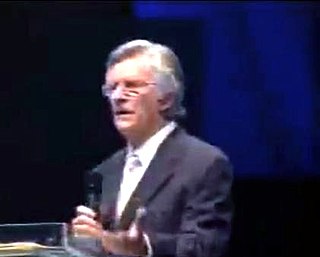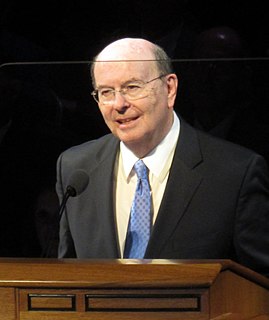A Quote by Thomas Carlyle
Of all acts of man repentance is the most divine. The greatest of all faults is to be conscious of none.
Related Quotes
Repentance is a realization that what God wants from you and what you want from God are not going to be achieved by doing the same old things, thinking the same old thoughts. Repentance is a decision to follow Jesus Christ and become his pilgrim in the path of peace. Repentance is the most practical of all words and the most practical of all acts. It is a feet-on-the-ground-kind-of-word. It puts a person in touch with the reality that God creates.
Strange a God who mouths Golden Rules and forgiveness, then invented hell; who mouths morals to other people and has none Himself; who frowns upon crimes yet commits them all; who created man without invitation, then tries to shuffle the responsibility for man's acts upon man, instead of honorably placing it where it belongs, upon Himself; and finally with altogether divine obtuseness, invites this poor, abused slave to worship Him!
It is well said, then, that it is by doing just acts that the just man is produced, and by doing temperate acts the temperate man; without doing these no one would have even a prospect of becoming good. But most people do not do these, but take refuge in theory and think they are being philosophers and will become good in this way, behaving somewhat like patients who listen attentively to their doctors, but do none of the things they are ordered to do.
Man ordinarily is a robot. He lives apparently awake, but not really. He walks, he talks, he acts, but it is all as if in sleep - not conscious of what he is doing, not conscious of what he is saying, not conscious of all that surrounds him. He moves surrounded in a dark cloud of unawareness. According to Gautama the Buddha, this is the original sin: to live unconsciously, to act out of unconsciousness. In fact, the word 'sin' comes from a root which means forgetfulness. Sin simply means that we are not conscious, aware, alert, that we don't have any inner light to guide us.
Immersion in the scriptures is essential for spiritual nourishment. The word of God inspires commitment and acts as a healing balm for hurt feelings, anger, or disillusionment . When our commitment is diminished for any reason, part of the solution is repentance. Commitment and repentance are closely intertwined.
I am a wicked man... But do you know, gentlemen, what was the main point about my wickedness? The whole thing, precisely was, the greatest nastiness precisely lay in my being shamefully conscious every moment, even in moments of the greatest bile, that I was not only not a wicked man but was not even an embittered man, that I was simply frightening sparrows in vain, and pleasing myself with it.




































